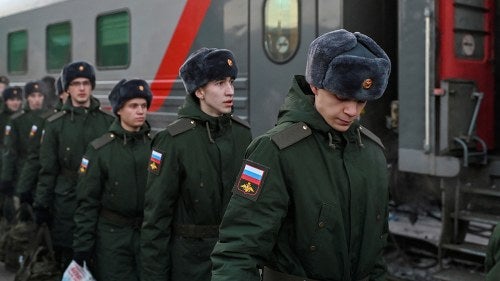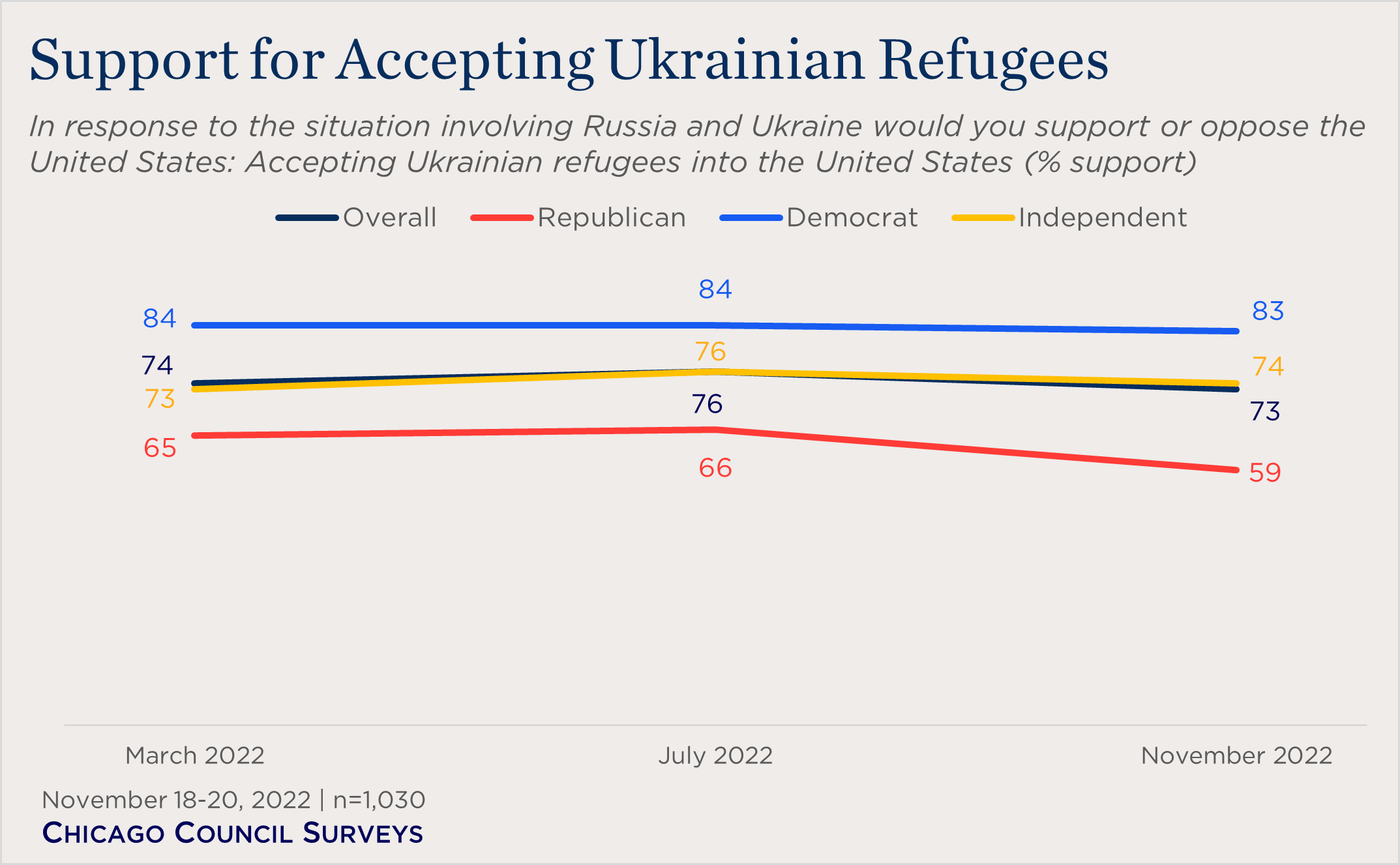Next Steps for Ukraine

Many Russians Support Ukraine Peace Talks—but Not Giving up Territory
As the war in Ukraine enters its tenth month, most Russians remain supportive of their country’s “special military operation,” a new Chicago Council-Levada Center survey shows. But do they want it to continue? Facing higher costs at home, a slight majority (53%) say Moscow should start peace talks, though territorial concessions might not be on the negotiating table. Most Russians say it would be unacceptable to return Crimea or the occupied Donbas region to Kyiv.
How is American support for Ukraine holding up? A separate Council poll conducted in November finds the public is roughly split over whether the United States should stand by Ukraine “as long as it takes” (48%, down from 58% in July) or urge Kyiv to settle for peace as soon as possible (47%, up from 38% in July).
Check out all our public opinion surveys on Russia.
The Data Dimension
Despite growing domestic divisions over US aid to Ukraine, the American public remains just as supportive of taking in refugees fleeing the war as they were back in March. In fact, Council data show refugee admission is more popular across partisan lines than providing both economic and military assistance to Kyiv—and second only to ramping up sanctions on Russia. Craig Kafura and Emily Sullivan dig deeper in our Running Numbers blog.

What We're Watching
- The Pentagon’s budget boost: “National defense is expensive, but more money doesn’t necessarily mean greater security,” Elizabeth Shackelford argues.
- Supply chain sources: As Americans wrap up their holiday shopping, Council polling finds a majority say the United States should prioritize running supply chains through friendly countries—even if that means higher prices.
- The battle for digital sovereignty: Author Aynne Kokas joins Deep Dish to explain why China has been so effective at collecting the data of foreign citizens and how this data could give them a geopolitical advantage.
- Yoon Suk-yeol's rating rebound: After adopting a "harder-edged image,” the South Korean leader’s polling numbers hit their highest level in five months, Karl Friedhoff writes.
Ask an Expert

How does US public opinion of Russia's war in Ukraine vary across age groups?
"While Gen Xers and Boomers are more likely to say that the United States should support Ukraine for as long as it takes, Millennials and Gen Z are more likely to say that the United States should urge Ukraine to settle for peace so that costs aren’t so high here at home."
—Research Assistant Emily Sullivan via Instagram

